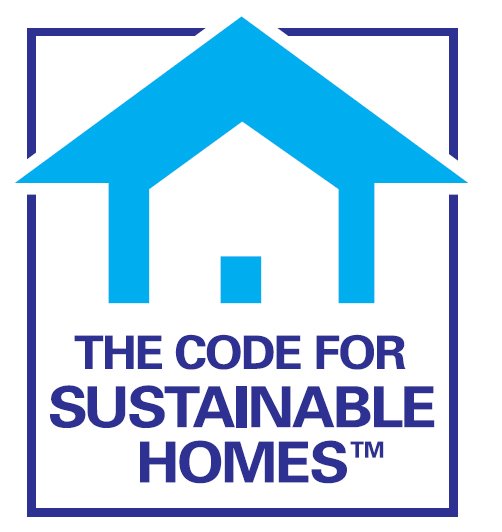Strong reaction as Government seeks to wind down Code for Sustainable Homes
Written by Mark Sait
Posted on September 4, 2013
UK government plans to wind down the Code for Sustainable Homes have drawn much comment over the past few days, coming on the heels of the CBI report calling for strategic rethinking of energy policy. While the Code move is not directly connected, it does throw light on the challenges the Government faces in managing energy planning for the country. Just to confirm, Code for Sustainable Homes provides nine measures of sustainable design:
- energy/CO2
- water
- materials
- surface water runoff (flooding and flood prevention)
- waste
- pollution
- health and well-being
- management
- ecology
The voluntary guidance code uses a 1 to 6 star system to rate overall sustainability performance of a new home against these the nine categories. Perhaps the fact that the code is advisory, not mandatory, is one reason why plans are afoot to remove it but experts, including Marietta Vafea, sustainability and environmental initiatives manager at property consultancy McBains Cooper think that the abolition is negative.
The removal is being viewed as potentially depriving UK housebuilding of many of the softer benefits the Code currently seeks to promote in new build design.
According to news portal Link2, Marietta Vafea, says: “It is true that any box-ticking scheme will have its limitations, however the Code for Sustainable Homes provides a framework that gives a nudge to developers, contractors and design teams to think their strategies through at an earlier stage, with the result that more coherence is achieved.”
A good example might be the reduction of carbon dioxide emissions. This is a mandatory credit under the Code, but there are additional credits to be gained for low NOx emissions of the heating system, low global warming potential of the insulation and low environmental impact of materials used according to the Green Guide to Specification.”
As Marietta argues, these are additional environmental benefits that need to be balanced with reduced carbon emissions. And the Code’s value as an educator/promotor of sustainable strategies is also very important.
Marietta argues: “The Code for Sustainable Homes has done a lot to drive change down the supply chain. A few years ago it was almost impossible to achieve full credits for responsible sourcing of materials; now it happens a lot more often, but there is still plenty of room for improvement in the smaller suppliers. It has also helped to drive down the cost of low and zero carbon technologies (possibly in conjunction with Feed-In Tariffs and the Renewable Heat Incentive).
The Code’s credit system also has benefits for planning, as it helps to reassure local authorities that new build designs have gone through a further iteration of quality assurance. Without rigorous evidence requirements – drawings, specifications and certificates – credits are not awarded. The sustainability elements continue after buildings are complete because the environments, owners and occupiers benefit from lower carbon footprint and reduced utility bills.
Marietta says: “The Code gives the UK a cutting edge and a point of differentiation in housing sustainability, there is no other country implementing any similar framework. Even the German Passivhaus Standard, which is the direction in which our own Building Regulations are moving, covers energy performance alone.
“The Government’s move to scrap the Code will certainly have a negative effect on design and construction, because without it there is no longer anything that will balance out contractors’ and developers’ natural gravitation towards the cheapest capex.
“Furthermore, Building Regulations Part L will not consider anything other than energy, whereas the main benefits which are missed are the non-measurable, soft qualities of a well thought-out design. This also takes into account the health and wellbeing of building occupants; by offering credits for high daylight factors, acoustic improvements, availability of a private outdoor space and accessibility to wheelchair users or the elderly.”
As we advised in the last blog post on the Coalition’s energy strategy, clear direction and vision are not immediately evident and needs to be addressed urgently but we doubt that removal of this beneficial Code will help matters much.
I’d underline again that national policies which promote simple, effective carbon-cutting solutions aligned with better support for companies seeking to put sustainability at the heart of their businesses, are urgently needed. If you need advice on cost-saving, carbon-cutting solutions, why not give us a call on 0333 123 5464 or write to us.
